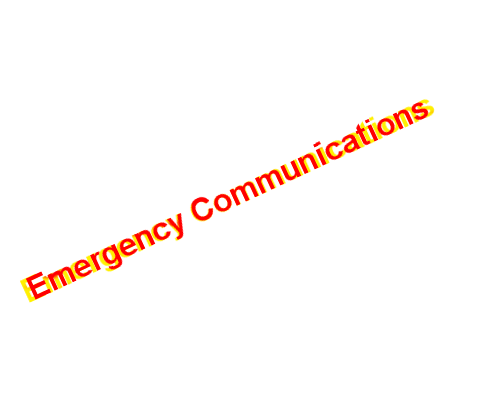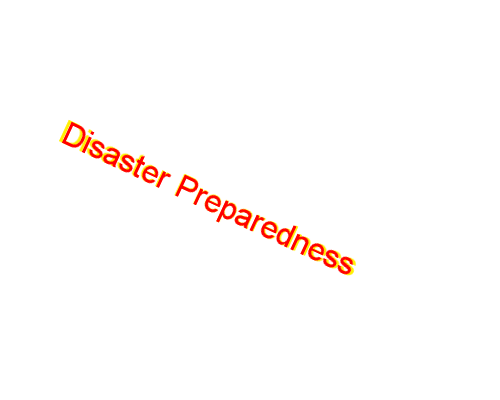About the owner:
Two-Way Radios has always been a hobby of mine. Ever since the first set of "Realistic" radios from Radio Shack, that I had when I was a kid. I have had many radios from old 2-way radios to CB radios. I remember listening to the Whittier CB group when I was young on the CB in my room. I knew nothing about antennas or tuning at that time, and always wondered why no one responded back to me when I transmitted (usually because they couldn't hear me.) My self-assigned CB "Handle" was The Blue Panther (In case anyone was wondering where that name came from, my favorite color was blue, and I always like the panthers for their cat-like reflexes, and smarts. Did you know that there is no such animal as a panther? We call them panthers, but they are actually all black leopards, or tigers.) I read up on amateur radios (AKA HAM radios) and really wanted to get my license, however, I didn't have the drive to study, and just kept putting it off. In 2003, I got into Commercial radios when I met my friend Harold who taught me a LOT about them, and that's where my love for Motorola came into play. I learned about FM, CTCSS, DCS, ASTRO, UHF, VHF, PTT, and all those other confusing Letters out there :-)
In 2007, I over heard a friend of mine talking about GMRS, and that there was no test for it, and it allowed a lot more coverage (and use) of the commercial radios I had. So in 2007, I got my GMRS (that General Mobile Radio Service for those who don't know) license WQGQ650 yep I was licensed. GMRS was great, but it was only limited to 16 channels, and only 8 of them were repeater pairs. So I decided to go for my amateur license. I studied, I knew I was ready. I went and took the test in Torrance... Failed! What, ok, that does it, so this time I studied even harder, and had them figured inside and out. Test day - SUCCESS!
On Nov. 7, 2008, I was a HAM (those who know me might say that's nothing new... for other definitions of the word.) A couple of weeks later I got my callsign... KI6LOU... KI6LOU! That wouldn't work, My name isn't Lou!, so I decided to get a vanity callsign... well, on CB I was the Blue Panter, so, how about K6BLU, or K1BLU, or K(anything)BLU... I submitted my request, and a couple of weeks later I became K1BLU... Licensed HAM radio operator.
I was content with my technicians license for quite some time... until I met and talked to people in TruHope. With all the enthusiasm that they have, I convinced my self (Note: I convinced myself, they didn't pressure me to do anything.) to not only go for my General, but also my Extra so that I could not only teach about amateur radio, but also become a tester and get more amateurs licensed. On November 28, 2011, 3 years after passing my Technician exam, I passed the Extra.
Since then, I have gone on not only to try and keep my radio skills sharp, but to stay Radio-Active. I volunteered part-time to opearate aboard the Queen Mary as W6RO where I was able to do a LOT more HF work then my house would allow. I also started my own business doing computer work, and have found every way possible to combine my talent for computers with my passion for radio. I now do classes, and help other hams with things like AREDN, Winlink,NBEMS, Allstar, IRLP, Packet Radio, DMR, and other Digital/Data Modes.
You can currently find me checking my winlink email, occasionally on the K6CHE Repeaters or on the WinSystem. If you're a late-night person, you can also hear me as the Wednesday night net controller on the Insomniac Trivia Net Every Wednesday night from 2300 +0800 until Net close.
Disaster Preparedness is one of those things that everyone knows about, but most are too busy to prepare for the "Just in case". I have lived in southern California all of my life. Our biggest "Just in case here are earthquakes. Most of them are not "Just in case" they happen, when they want, where they want, and how big they want; We don't have any notification (little lone control) over any of them. Our "Just in case" is for the "Big One" as most call it; an earthquake much larger than most, that knocks out power, gas, telephone, and all of our services that make our lives comfortable today. In Los Angeles, what would you do if you had no electricity, telephone lines (including cell phones) gas to heat water, or fresh water coming in? Would you be prepared? Don't say go to the store, because that's where EVERYONE ELSE AROUND YOU will be going, and without supplies coming in for a couple of weeks, the stores (Without electricity to take credit cards) will be able to charge what ever they want (called supply and demand, they have it, you need it). Disaster preparedness is all about being prepared (aka meeting your needs) during any disaster. For example, some of you don't need water, you have a pool you can drain (do you have a way to clean it for drinking?) others may need pet supplies, and others may need special medication for survival.
If any of you reading this have any questions, or any interest WHATSOEVER in either Amateur Radio or Disaster Preparedness, please do not hesitate to contact me. I'll be more than happy to help you, tell you all about them, all about the benefits of them, and why to THIS DAY Amateur Radio is still used by more groups and agencies for communications purposes.
Untill I hear form you, 73 My friend!


